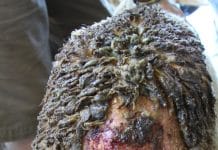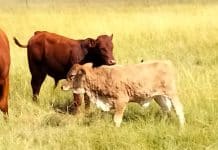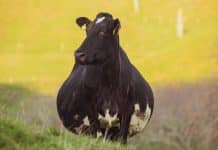Estimated reading time: 4 minutes
In November last year, Dr Francois van de Vyver, formerly of Voermol, addressed Brahman society members regarding the importance of nutrition in young animals retained as breeding animals. While it is crucial to supplement vitamins and minerals in breeding animals, he stressed the fact that their natural diet should be complemented with additional nutrition, and not something that is already there.
“The first question we need to answer,” he said, “is what determines profitability? In this regard, reproduction rate (calving %), weaning and marketing percentage, and adding value to every animal you sell are top of the list.”
Read about alternative animal feed here.
Re-conception of first-calvers
A first-calver will often not have reached her full mature weight yet and still has a requirement for growth, hence the challenge to get her to re-conceive within the 90-day window if you aim to produce a calf every year. Dr Van de Vyver noted in this regard that only around 10% of producers in South Africa are able to record an average intercalving period (ICP) of less than 399 days.
“By putting a timeline on your cow-calf system, it is easier to identify critical areas for nutrition, should they arise.”
In terms of nutritional requirements, there is a 100-day period (from around 30 days before calving, until around 70 days after calving) during which the nutritional requirement of the female is extremely high – her requirement is equal to her requirement for the rest of the production year (roughly 250 days).
During this 100-day period several events occur in short succession:
- In the last 30 days before calving, the growth rate of the calf is extremely high. It also takes up a lot of ‘space’ so that it is difficult for the cow to ingest a high volume of feed.
- Then the calf is born. If the birth was difficult, it is highly probable that she may not re-conceive within the desired 90 days.
- In the next 70 days the cow must feed the calf sufficiently, which places the lactating young cow under severe pressure; 90 days after calving, she has re-conceived.
Managing first-calvers
Dr Van de Vyver recommends the following guidelines for optimal management:
- If you do not follow a fodder-flow programme, at least compile one for this period.
- Where possible, manage heifers and first-calf cows as separate groups.
- Manage weight and record body condition scores.
- Beware of over- or undernutrition, as both have negative effects.
- Allow a longer rest period for first-calf cows.
- Avoid excessive energy in the last trimester; it will cause calving difficulties if the calf becomes too big.
- Provide balanced licks and make sure you know what nutrients are already available.
- Consider a flush lick for first-calf cows and creep feed for their calves.
Feeding periods
Three basic feeding periods can be identified throughout the year:
- Early summer, when most cows (> 60%) would have calved, the veld will be of high quality. Supplementary feeding should therefore focus on the primary deficiency of the season, considering the area and production status of the animal.
- Transition to winter when we move away from phosphorus to urea-containing winter licks. In winter, nitrogen (N) and energy are the primary deficiencies as the veld will be dry and unpalatable. The nutritional requirements of in-calf cows will increase when the veld starts deteriorating even further. It is therefore necessary to supply protein, minerals and vitamins.
- In the last phase the cows are either in late gestation or have already calved, and require additional nutrients as they are in a negative energy balance. Once the intake of protein lick starts to increase, switch to a production lick.
Remember, feed according to need. This implies that you should know the nutritional value of the veld, and then provide additional nutrition to complement any deficiencies according to the requirements of the specific production phase. – Brahman Cattle Breeders’ Society
For enquiries, contact the Brahman Cattle Breeders’ Society on 051 446 4619/446 3452 or visit www.brahman.co.za.






